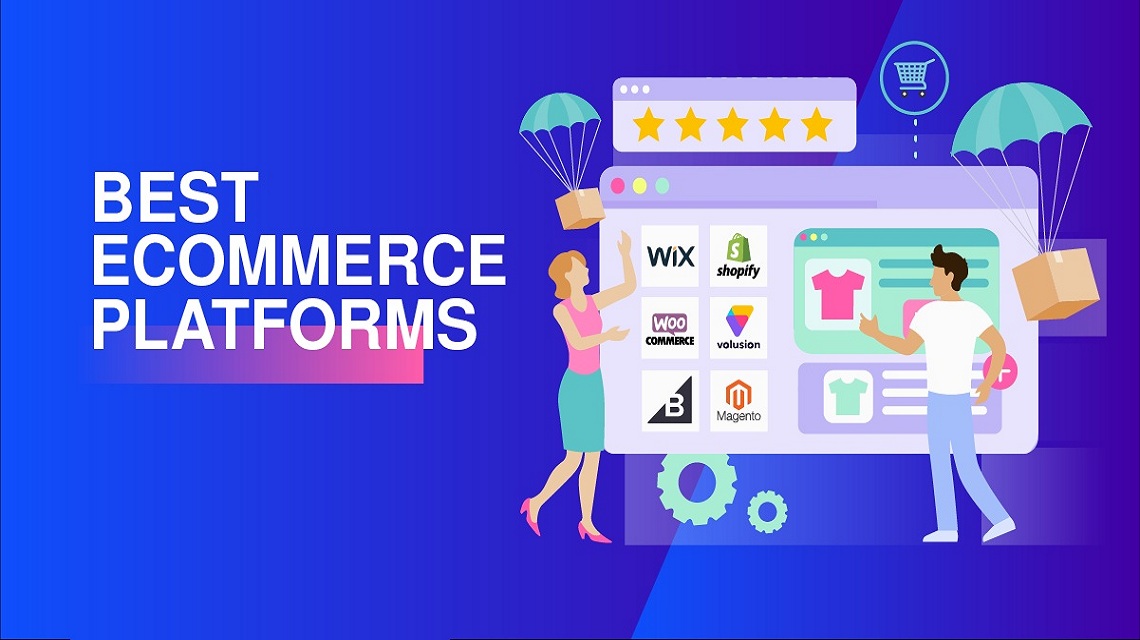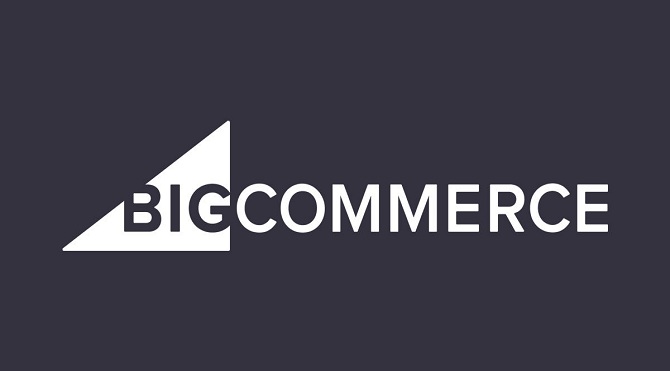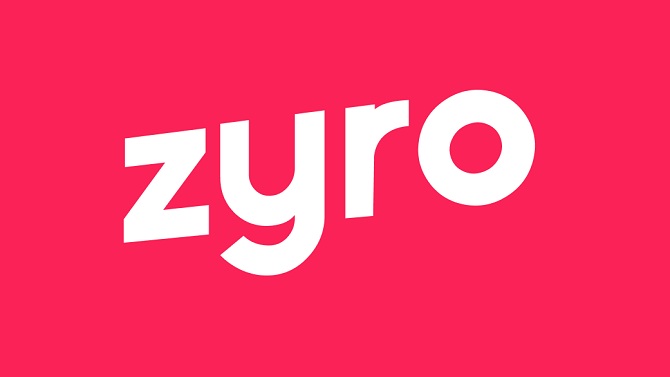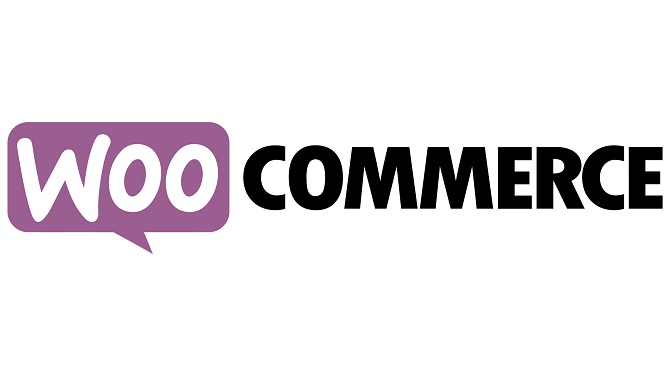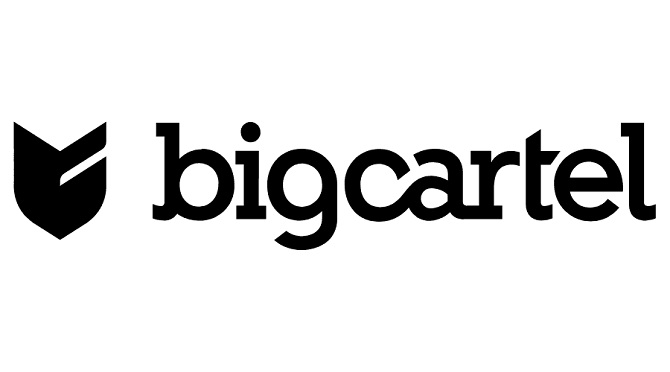It’s fascinating to start an eCommerce site, and you get to title your company, design your symbol and identity, and establish your website. While it’s tempting to focus on your immediate requirements, evaluating your long-term goals and the additional capabilities you’ll require is equally critical.
It is no longer sufficient to select the best online store builder. The most excellent eCommerce website is an ecosystem of tools that effortlessly interact, providing you complete command over each part of your business and the capacity to expand as your firm grows, according to savvy entrepreneurs.
Let’s take a glance at the finest eCommerce platforms and how to determine which is suitable for your company.
Table of Contents
What is the Definition of an eCommerce Platform?
An eCommerce platform enables you to establish and create an online experience that allows you to sell and complete orders no matter where your consumers are or where they choose to purchase.
While most individuals consider an eCommerce platform to be nothing more than a feature that enables them to advertise items and receive money digitally, a trustworthy eCommerce platform is so much more. Your eCommerce platform must serve as a comprehensive command center for your firm, allowing you to manage it all from inventory to marketing. It must not only allow you to accept payments but provide you with easy accessibility to all of the tools you’ll have to sell online, including (but not limited to) your web store.
The Most Effective eCommerce Platforms
Once again, the most powerful eCommerce platform is determined by your specific business model and growth strategy. Here’s a rundown of some of the finest eCommerce platforms for 2022 to help you decide which is ideal for your company:
BigCommerce
BigCommerce is the most powerful eCommerce platform overall. It’s perfect for larger retail firms because of its powerful item search engine. It’s also an excellent option for persons who wish to open an eCommerce website or who already have a physical store but would like to enhance their business to incorporate online orders. Its various software allows any specialty or business to succeed.
Utilizing any of the adjustable templates to create your store, sell, and market your products, you may customize your online shop without having to understand how to code. It’s geared at folks who don’t have a lot of web development experience, but it also allows techies to adjust the HTML and CSS.
The most affordable option is $29.95 per month. Checkout vouchers, gift cards, unlimited bandwidth, and expert analysis are among the perks. However, you won’t receive a custom SSL or an abandoned cart saver, but it’s still an excellent option for small businesses with annual sales of less than $50,000. The sales limit rises in tandem with the strategy.
Shopify
With over two million stores built on the Shopify platform in the last 15 years, it’s challenging to discover a good alternative for most smaller companies trying to have an online marketplace up and operating rapidly.
Sign up for a 14-day trial with no credit card required, and you’ll have the first build of your store ready to go in minutes. The onboarding wizard guides you through adding products, changing the layout of your store, connecting your domain, and setting up payment processing.
While Shopify checks most of the boxes straight out of the box, its flexibility and application shop are what set it apart. However, because Shopify is so popular, you can choose from over 1,300 themes on ThemeForest or hire a professional designer already familiar with the platform to create a custom one for you.
Almost any functionality you may need is similar way. If it isn’t integrated into Shopify, you could use application shop to discover an extension, plugin, or service that accomplishes it. Navigate to apps.shopify.com, locate the application you require, and click Add Application. To handle all of the applications you’ve downloaded, go back to your Shopify dashboard and select Apps in the sidebar.
Wix
Wix is a drag-and-drop web platform that provides hosting services and domain name registration. You could create a simple website for free, but if you want to utilize Wix’s eCommerce capabilities, you’ll need to switch to a premium plan.
When it comes to eCommerce, Wix provides several useful features. Businesses may monitor purchases, take online payments, offer goods across different platforms, and run abandoned cart marketing using the platform.
However, it is missing some vital aspects for product-based enterprises. Low stock alerts and other necessary inventory management capabilities are not available. You’ll need a website with more extensive inventory monitoring tools if you have more than ten or so products.
Zyro
Zyro is a low-cost SaaS platform geared toward smaller companies. It’s a service from web hosting provider Hostinger, and it’s a comparative newbie to the industry.
There are several free themes to utilize as a framework for your project, in addition to a drag-and-drop editor to modify your site. You can sell both electronic and material things using it.
To access the webshop capabilities, you should subscribe to either the eCommerce or eCommerce Plus plans. Before reductions, you’ll invest anywhere from $19.90 to $25.90 every month.
WooCommerce
Instead of adding payment processors to a current platform, most eCommerce systems function best to create a comprehensive online marketplace. It’s easier if all is controlled by a single dashboard and constructed with the same tools. So, what should you do if you already have a website?
The built-in tools should be your first choice if you’re using a platform like Squarespace or Weebly. However, if you utilize WordPress, as do vast swaths of the internet, WooCommerce is your best option. Instead of beginning over on a new network, this WordPress plugin effortlessly connects to your existing WordPress website for simple selling.
WooCommerce is insanely simple to set up on your website. Create an account on WooCommerce’s website.
Shift4shop
3dcart (formerly Shift4Shop) has supported over 22,000 online businesses since its public launch in 2001, with clients including PCMag. They offer helpful features such as limitless storage and no transaction costs. You may potentially utilize their point-of-sale system, which supports multichannel sales. The business changed its name to Shift4Shop in 2021.
Despite being older than BigCommerce and Shopify, Shift4Shop does not perform well, and the cause is apparent. It’s not for the faint of heart. Despite a good onboarding video as you get into your dashboard, the entire process is challenging to understand; the creator is not aesthetically attractive.
They have several industrial-style templates, but they feel dated. They have several industrial-style templates, but they feel dated. Furthermore, because there is no drag-and-drop feature, personalizing the store takes a long time to grasp and become accustomed to, even for experienced people. Fortunately, a developer community is prepared to help with theme development and other tweaks. Altogether, the price is excellent. We believe it is still missing out by not including an abandoned cart saver as a standard function. Shopify decided to integrate it, therefore undercutting the competitors. It does, however, come with more functionality out of the box than Shopify.
Big Cartel
Big Cartel is a wholly hosted eCommerce system and website creator for manufacturers, artists, and artisans, similar to those found on Etsy. Big Cartel offers customizable templates and domain registration, and advertising services.
Big Cartel limits merchants to five photos per product, even though you could customize the style and feel of your site. Payment and integration options are minimal, making scaling as a multichannel firm is much more difficult.
Because pricing is determined by the number of things you sell is determined by pricing, it could quickly become prohibitively expensive as your company and brand portfolio expand.
Magento
Magento is a popular open-source e-commerce software around the world. It was first published in 2009, and in 2015, it was superseded by Magento 2.0, which had a better code base and additional stability/usability improvements. Adobe later bought it in 2018, and it now comes in two flavors: Magento Open Source and Magento Commerce.
Magento is perfect for small-to-medium companies with enough need, time, labor, and expertise to develop their website. It’s a robust system with a library of more than 5,000 extensions. However, it necessitates a longer development time and a more significant expenditure compared to most of its rivals.
Squarespace
Squarespace allows users to construct web pages using drag-and-drop capabilities and pre-built website designs. Squarespace is ideal for startups and smaller businesses that only require basic e-commerce functionality. The e-commerce framework is helpful, but only when used with the primary website builder. More specialized systems would be ideal for businesses that require more complex online space or handle a vast volume of merchandise.
Conclusion
Although there is no such thing as a perfect eCommerce platform, I’ve narrowed down the top options. The finest eCommerce site builder is ultimately determined by your requirements. We recommend that you look into a few as front-runners — BigCommerce was by far the best overall platform for any business plan and performed exceptionally well in terms of SEO.
WooCommerce is coming closer to market giants like Shopify in terms of functionality and services. Ideal for eCommerce sites with a private or white label, which is fantastic for affiliate marketing. This is the best solution if you want to run a private label and affiliate marketing combo site.
